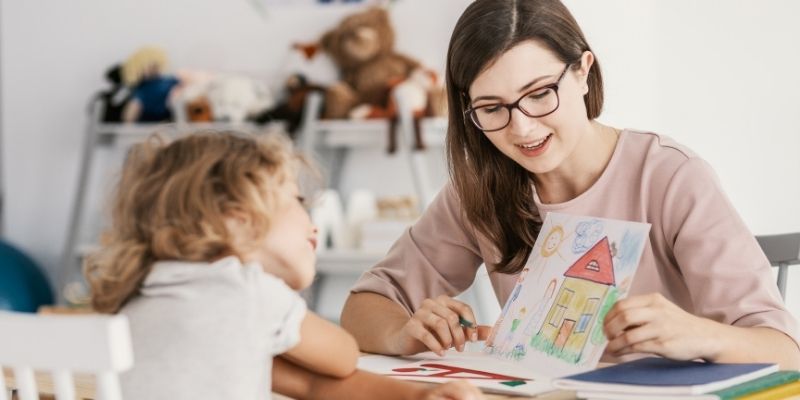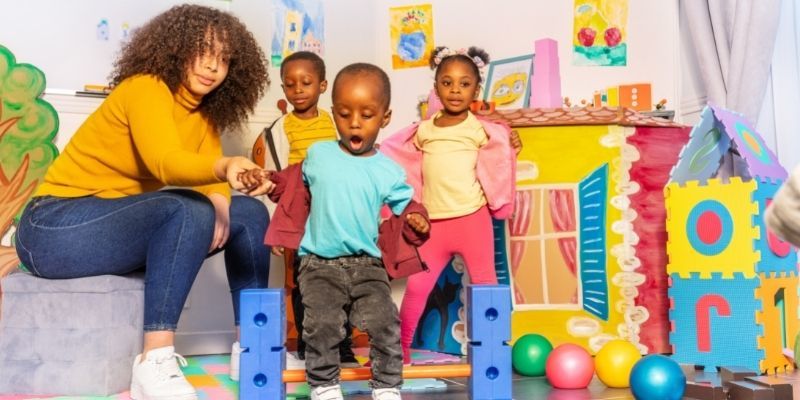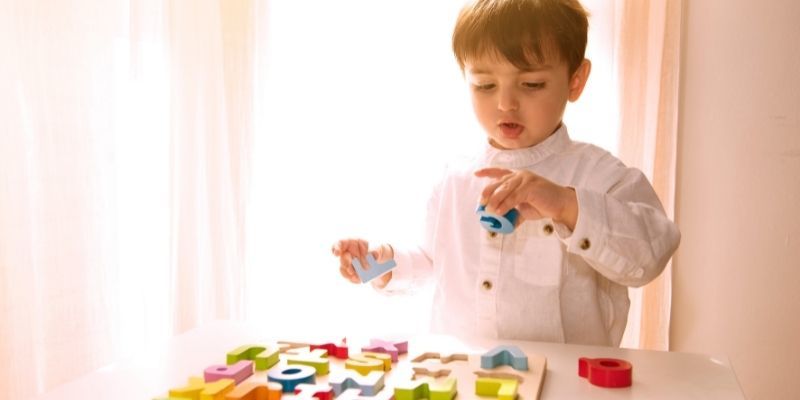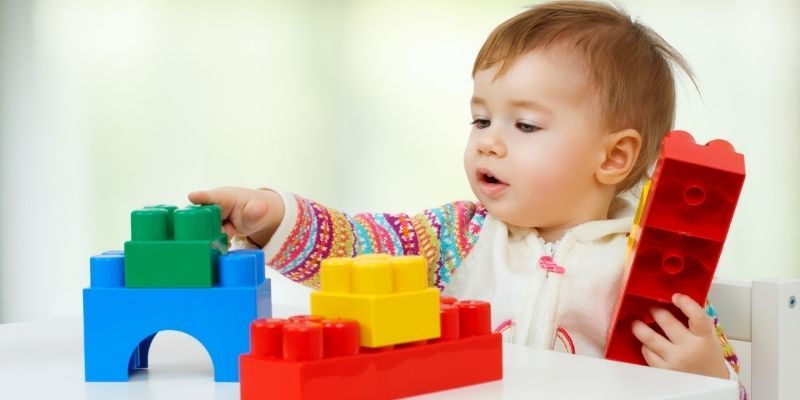How to Get a Career in Child Development
How to Get a Career in Child Development
The most crucial stages of development happen between birth and adulthood, but the brain does not develop fully until the mid-twenties. If your career ambition is to work in child development jobs, then it is important that you gain a solid understanding of child development stages and the factors that can affect smooth transitions.
Below, we provide an overview of what child development is, the child development courses you can study, and the careers you can pursue with your enhanced knowledge.
What is Child Development?
Child development encompasses the various stages that a child experiences from birth through to adulthood. The child development stages are crucial as they consist of the various physical and emotional changes that children go through, as well as the changes in language and thought.
Understanding child development is important for anyone hoping to work within early years education, or with children and young people in other roles. When a child goes through all child development stages, they should be able to create their own independence and move away from the dependency they had on their parents or guardians.
The importance of child development cannot be understated, as this process enables children to develop a range of skills that will help them navigate through their lives. The main characteristics of child development include:
- Communication and speech
- Physical
- Social and emotional
- Cognitive
It is important to note that child development stages are all linked, in the sense that a child cannot develop in one area without developing in the other.

What are the 5 Stages of Child Development?
Child development occurs from birth to the age of 5 and the process is broken down by age, so the five child development stages consist of:
- Newborn (0-3 months)
- Infant (3-12 months)
- Toddler (1-3 years)
- Nursery age (3-4 years)
- School age (4-5 years)
What are the Milestones in Child Development?
When we think of milestones in adult life, it is usually when you reach a certain age or tick off a life goal. With regards to children, milestones are the physical, emotional, cognitive, and communicative skills that are second nature for most adults.
Child development stages do not always happen in the same sequence for every child, but that is to be expected. Generally, the stages are in place as a guide for parents and guardians so that they are aware of what a child needs to develop between birth and the age of 5. Various factors, including genetics and environment, can affect the timing of development stages.
Understanding child development means understanding the characteristics that are usually displayed by children during each stage. We have outlined these below:
Newborn (0-3 Months)
A newborn between birth and three months can generally:
- Make eye contact
- Cry for various needs
- Listen to a person’s voice
- Start controlling their arms, hands, legs, and head
- Follow objects with their eyes
- Smile between 2-3 months
- Display interest in objects and human faces
Infant (3-12 Months)
Generally, an infant at 3 months old will be able to:
- Make different sounds
- Listen when spoken to and respond with various sounds
- React to noises
- Sit upright
- Roll over
- Laugh when happy and cry when in distress
- Start recognising familiar faces
- Form attachments to toys
- Notices music
An infant from 7-9 months can:
- Recognise the sound of their own name
- Follow commands with gestures
- Look at people or objects when they are named
- Grab objects with one hand
- Start crawling
- Stand, but not all children at this age reach this child development stage
- Drop objects and enjoy watching them fall
An infant from 9-12 months can:
- Understand what ‘no’ means
- Communicate with gestures
- Use made up words that have a certain meaning
- Improve hand-eye coordination
- Walk when holding on to furniture
- Stand briefly without support, but not all children at this age may be able to
- Become clingy in the company of people they don’t know
- Give hugs and enjoy getting hugs
- Concentrate for up to 1 minute
- Look for hidden objects in the right places
- Organise objects into patterns

Toddler (1-3 Years)
From the age of 1, a toddler can generally:
- Say their first word
- Build up their vocabulary to around 5-10 words
- Respond to questions
- Make marks on paper
- Stand and walk a few steps
- Sit up and crawl quickly
- Recognise themselves in a mirror
- Point to named body parts
- Notice familiar things in pictures
A toddler from 18 months can:
- Speak at least 50 words
- Name pictures and objects
- Use two-word phrases
- Uses ‘me’, ‘you’, ‘my’ phrases
- Talk to themselves during play
- Move around confidently
- Use a spoon to feed themselves
- Drink from a cup
At 2-3 years old, a toddler can:
- Start to say full sentences
- Talk about what they’re doing while they’re doing it
- Respond to another person’s voice more often
- Dress and undress themselves
- Use the toilet alone
- Avoid physical obstacles
- Jump and hop
- Play alongside other children
- Experience different emotions
- Name colours and recognise some letters
- Say numbers or count aloud
- Understand elements of reality and make-believe
- Copies others
- Knows their own name
Nursery Age (3-4 Years)
From the age of 3, most children can:
- Speak relatively clearly and ask lots of questions
- Use a toothbrush
- Walk up and down stairs without support
- Catch a ball from a short distance
- Use a spoon and fork
- Participate with small groups in games
- Understand that they have a body and feelings
- Talk about their feelings
- Role-play
- Know that they have done something wrong
- Remember songs and stories
- Concentrate for up to 3 minutes
- Scroll through a book alone
- Recognised their full name and understand their gender
School Age (4-5 Years)
Most four-year olds are able to do the following:
- Use complex sentences
- Dress and wash independently, as well as eat without help
- Brush their hair
- Walk along a straight line on the ground
- Initiate conversations with others and make friends
- Talk about their likes and dislikes
- Use props in imaginative play
- Share with others
- Understand anger
- Feel proud of their achievements
- Respond to reasoning
- Enjoy being independent but still want reassurance
- Understand right from wrong
- Understand numbers, colours, time, and size on a basic level
- Ask deeper questions about life and death
- Understand routines
From the age of 5, a child can:
- Tell stories
- Answer simple questions
- Sing songs and recite nursery rhymes

How Does Health Affect Child Development?
When someone welcomes a baby into their lives, they hope that the child development process is simple and easy, with everything going to plan, but it is not always that straightforward. Some children are born with chronic illnesses that affect their child development stages. In fact, health is one of the most significant factors affecting child development.
It is important to note, though, that even if a child does have health problems, it doesn’t mean that they won’t go through the child development stages, it might just look slightly different. Below, we have outlined the key ages and how illness can affect child development.
Infant (3-12 Months)
Dealing with a health problem as an infant can affect them in the following ways:
- Feelings of separation from their primary caregiver
- Undergoing procedures that may cause pain
- Forcing changes in diet and uneven sleep patterns
Toddler (1-3 Years)
An illness can cause the following for toddlers:
- Anxiety and pain
- Separation from their parents or guardians
- Physiological and emotional regression
- Lack of discipline due to their parents or guardians being fearful of doing so
Nursery Age (3-4 Years)
A child at nursery age may be affected in the following ways if they have ill health:
- Experience an increase in aggressive reactions
- View the illness as punishment for doing something wrong
School Age (4-5 Years)
At school age, a child living with an illness may experience the following:
- A sense of inadequacy and lack of independence
- Low self-esteem
- Concern about their friend’s approval
- Separation from peers
While the child development stages may be hindered somewhat by illness, there is support and guidance for parents and guardians to enlist. For someone who wants to work in child development jobs, it is important to be aware of factors affecting child development so that you can provide the appropriate level of support.

What Child Development Courses Can I Study?
To gain further understanding of child development and the various child development stages involved, it is always beneficial to study a course in the subject. With the help of learndirect, you can delve into the principles and processes of the various child development stages, all from the comfort of your own home.
We provide a wide range of online courses, making us one of the largest distance learning providers in the UK. We have helped more than 4 million learners gain qualifications in various subjects and industries. So, if you are looking to work with young children either in teaching or another strand of education, we have courses that will build your knowledge. Below, we have outlined various course options to consider.
Child Development – Advanced
Understanding child development is essential when working with and supporting young children, and this Advanced Child Development course will give you the knowledge you need to form a solid foundation. Through a series of modules, you will explore the main child development stages, as well as the influences that can affect how a child and young person develops.
You will also learn how to support children during these crucial stages of development, and how to encourage and support positive behaviour. This online course will also cover the potential effects that transitional events can have on children and young people.
Child Care and Education
This online course will give you a solid overview of child development and factors affecting child development. You will explore various topics during this Child Care and Education course, including how to keep children safe, how to promote a healthy environment, and how to care for sick children.
Access to Higher Education Diploma
If you want to go to university to study a childhood-related degree but don’t have the A Levels to meet entry requirements, then consider the Access to Higher Education Diploma (Education) course, which is delivered entirely online. It presents the perfect preparation for university and is the equivalent of 3 A Levels. Most universities accept this Level 3 qualification as part of their entry requirements, but please do your research beforehand.

Child Development Jobs
The most obvious child development job is an Early Years Teacher, and if you want to pursue this role, you will need to achieve Early Years Teacher Status (EYTS). To get to this point, there are various routes you can take, including:
- Undergraduate degree – By studying a degree in a childhood-related subject, you can achieve EYTS, but this is only if the degree is approved. Usually, it takes three to four years to complete the degree full-time.
- Graduate – If you have an undergraduate degree but no experience working with children, you can enrol on a year-long course that results in EYTS. The course will include a work placement.
- Graduate employment-based – This will be a part-time course for graduates that work in an early years setting but require further training to meet Teachers’ Standards.
- Assessment only – If you are a graduate with experience working with children from the age of 0-5 years old and you already meet Teachers’ Standards, then you will not require further training and will only need to do the assessment, which should take three months.
With learndirect, you can prepare for an Early Years Teacher role by enrolling on the Level 3 Diploma for Working in the Early Years Sector (Early Years Educator). You will be taught everything you need to know to pursue a professional position in an early years setting.
Teaching is an obvious choice for aspiring learners but working in child development can also lead to other roles within education. For example, with the right qualifications, you could work in the following sectors:
- Social work
- Therapy
- Counselling
- Charities

Get Started Today!
If you want to learn more about our child development courses or receive advice on the best route towards the career of your choice, speak to one of our Course Executives on 01202 006 464 or contact us online.
















